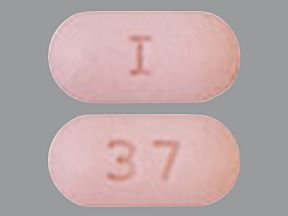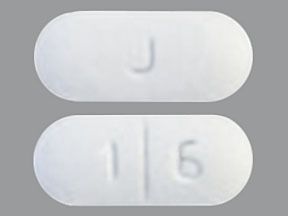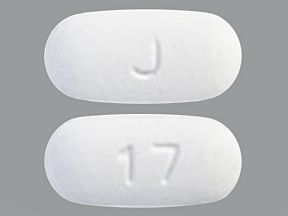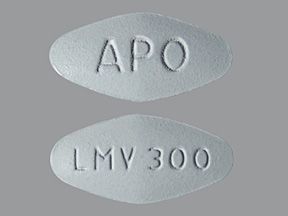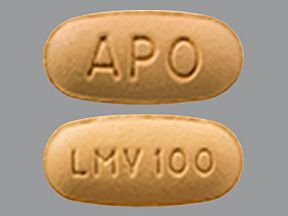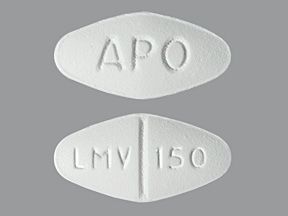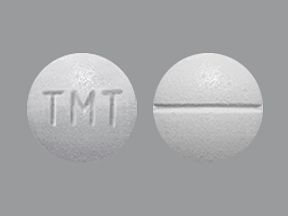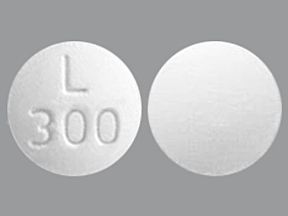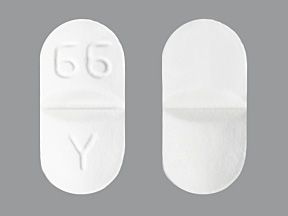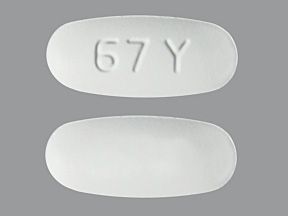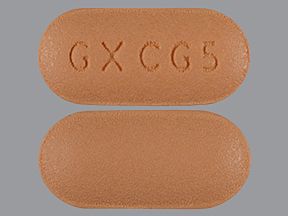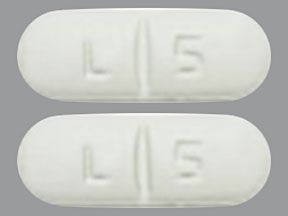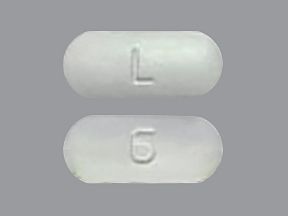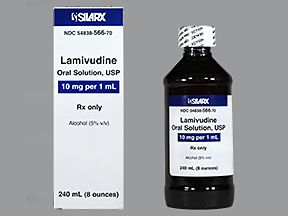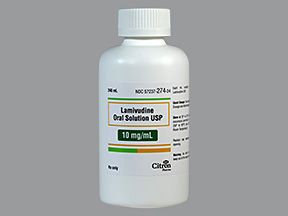FDA warning
This drug has a boxed warning. This is the most serious warning from the Food and Drug Administration (FDA). A boxed warning alerts doctors and patients about drug effects that may be dangerous.
- If you have HBV and take lamivudine but then stop taking it, your HBV infection could become much more severe. Your healthcare provider would need to monitor you very carefully if this happens. Also, be aware that when lamivudine is prescribed for HIV infection, it’s prescribed in a different strength. Don’t use lamivudine that’s prescribed to treat HIV. In the same way, if you have HIV infection, don’t use lamivudine prescribed to treat HBV infection.
- Lamivudine oral tablet is available as a generic drug and a brand-name drug. Brand name: Epivir, Epivir-HBV.
- Lamivudine comes as an oral tablet and an oral solution.
- Lamivudine oral tablet is used to treat HIV infection and hepatitis B (HBV) infection.
Lamivudine is a prescription drug. It comes as an oral tablet and an oral solution.
Lamivudine oral tablet is available as the brand-name drugs Epivir and Epivir-HBV. It’s also available as a generic drug. Generic drugs usually cost less than the brand-name version. In some cases, they may not be available in all strengths or forms as the brand-name drug.
If you’re taking lamivudine to treat HIV, you’ll take it as part of a combination therapy. That means you’ll need to take it with other drugs to treat your HIV infection.
Why it’s used
Lamivudine is used to treat two different viral infections: HIV and hepatitis B (HBV).
How it works
Lamivudine belongs to a class of drugs called nucleoside reverse transcriptase inhibitors (NRTIs). A class of drugs is a group of medications that work in a similar way. These drugs are often used to treat similar conditions.
Lamivudine doesn’t cure infection with HIV or HBV. However, it helps slow the progression of these diseases by limiting the ability of the viruses to replicate (make copies of themselves).
In order to replicate and spread in your body, HIV and HBV need to use an enzyme called reverse transcriptase. NRTIs such as lamivudine block this enzyme. This action prevents HIV and HBV from making copies as quickly, slowing down the spread of the viruses.
When lamivudine is used on its own to treat HIV, it can lead to drug resistance. It must be used in combination with at least two other antiretroviral drugs to control HIV.
Lamivudine oral tablet can cause mild or serious side effects. The following list contains some of the key side effects that may occur while taking lamivudine. This list does not include all possible side effects.
For more information on the possible side effects of lamivudine, or tips on how to deal with a troubling side effect, talk with your doctor or pharmacist.
More common side effects
The more common side effects that can occur with lamivudine include:
- cough
- diarrhea
- fatigue
- headache
- malaise (general discomfort)
- nasal symptoms, such as a runny nose
- nausea
Serious side effects
Call your doctor right away if you have serious side effects. Call 911 if your symptoms feel life-threatening or if you think you’re having a medical emergency. Serious side effects and their symptoms can include the following:
- Lactic acidosis or severe liver enlargement. Symptoms can include:
- stomach pain
- diarrhea
- shallow breathing
- muscle pain
- weakness
- feeling cold or dizzy
- Pancreatitis. Symptoms can include:
- stomach bloating
- pain
- nausea
- vomiting
- tenderness when touching the abdomen
- Hypersensitivity or anaphylaxis. Symptoms can include:
- sudden or severe rash
- breathing problems
- hives
- Liver disease. Symptoms can include:
- dark urine
- loss of appetite
- fatigue
- jaundice (yellowing skin)
- nausea
- tenderness in the stomach area
- Fungal infection, pneumonia, or tuberculosis. These could be a sign that you’re experiencing immune reconstitution syndrome.
Lamivudine oral tablet can interact with several other medications. Different interactions can cause different effects. For instance, some can interfere with how well a drug works, while others can cause increased side effects.
Below is a list of medications that can interact with lamivudine. This list does not contain all drugs that may interact with lamivudine.
Before taking lamivudine, be sure to tell your doctor and pharmacist about all prescription, over-the-counter, and other drugs you take. Also tell them about any vitamins, herbs, and supplements you use. Sharing this information can help you avoid potential interactions.
If you have questions about drug interactions that may affect you, ask your doctor or pharmacist.
Emtricitabine
Don’t take emtricitabine if you’re also taking lamivudine. They are similar drugs and taking them together can increase the dangerous side effects of emtricitabine. Drugs that contain emtricitabine include:
- emtricitabine (Emtriva)
- emtricitabine/tenofovir disoproxil fumarate (Truvada)
- emtricitabine/tenofovir alafenamide fumarate (Descovy)
- efavirenz/emtricitabine/tenofovir disoproxil fumarate (Atripla)
- rilpivirine/emtricitabine /tenofovir disoproxil fumarate (Complera)
- rilpivirine/emtricitabine/tenofovir alafenamide fumarate (Odefsey)
- emtricitabine/tenofovir disoproxil fumarate/elvitegravir/cobicistat (Stribild)
- emtricitabine/tenofovir alafenamide fumarate/elvitegravir/cobicistat (Genvoya)
Trimethoprim/sulfamethoxazole
This combination antibiotic is used to treat various infections, including urinary tract infection and traveler’s diarrhea. Lamivudine may interact with these drugs. Talk to your doctor if you’re taking this antibiotic. Other names for it include:
- Bactrim
- Septra DS
- Cotrim DS
Drugs that contain sorbitol
Taking sorbitol with lamivudine can decrease the amount of lamivudine in your body. This can make it less effective. If possible, avoiding using lamivudine with any drugs that contain sorbitol. This includes prescription and over-the-counter medications. If you must take lamivudine with drugs that contain sorbitol, your doctor will likely monitor your viral load more closely.
The lamivudine dosage your doctor prescribes will depend on several factors. These include:
- the type and severity of the condition you’re using lamivudine to treat
- your age
- the form of lamivudine you take
- other medical conditions you may have
Typically, your doctor will start you on a low dosage and adjust it over time to reach the dosage that’s right for you. They’ll ultimately prescribe the smallest dosage that provides the desired effect.
The following information describes dosages that are commonly used or recommended. However, be sure to take the dosage your doctor prescribes for you. Your doctor will determine the best dosage to suit your needs.
Dosage for human immunodeficiency virus (HIV) infection
Generic: Lamivudine
- Form: oral tablet
- Strengths: 150 mg, 300 mg
Brand: Epivir
- Form: oral tablet
- Strengths: 150 mg, 300 mg
Adult dosage (ages 18 years and older)
- Typical dosage: 300 mg each day. This amount can be given as 150 mg twice a day, or 300 mg once a day.
Child dosage (ages 3 months to 17 years)
Dosage is based on your child’s weight.
- Typical dosage: 4 mg/kg, twice per day, or 8 mg/kg once daily.
- For children who weigh 14 kg (31 lbs) to
- For children who weigh ≥20 (44 lbs) to ≤25 kg (55 lbs): 225 mg once daily, or 75 mg in the morning and 150 mg in the evening.
- For children who weigh ≥25 kg (55 lbs): 300 mg once daily, or 150 mg twice daily.
Child dosage (ages 0–2 months)
Dosage for children younger than 3 months has not been established.
Special dosage considerations
- For children and others who can’t swallow tablets: Children and others who can’t swallow tablets may take the oral solution instead. The dosage is based on body weight. Your child’s doctor will determine the dosage. The tablet form is preferred for children who weigh at least 31 pounds (14 kg) and can swallow tablets.
- For people with kidney disease: Your kidneys may not process lamivudine from your blood quickly enough. Your doctor may prescribe you a lower dosage so that the drug level doesn’t get too high in your body.
Dosage for hepatitis B virus (HBV) infection
Brand: Epivir-HBV
- Form: oral tablet
- Strengths: 100 mg
Adult dosage (ages 18 years and older)
- Typical dosage: 100 mg once per day.
Child dosage (ages 2–17 years)
Dosage is based on your child’s weight. For children who need less than 100 mg per day, they should take the oral solution version of this drug.
- Typical dosage: 3 mg/kg once per day.
- Maximum dosage: 100 mg daily.
Child dosage (ages 0–1 years)
Dosage for children younger than 2 years has not been established.
Special dosage considerations
- For children and others who can’t swallow tablets: Children and others who can’t swallow tablets may take the oral solution instead. The dosage is based on body weight. Your child’s doctor will determine the dosage.
- For people with kidney disease: Your kidneys may not process lamivudine from your blood quickly enough. Your doctor may prescribe you a lower dosage so that the drug level doesn’t get too high in your body.
This drug comes with several warnings.
FDA warning: usage for HBV and HIV
- This drug has a black box warning. A black box warning is the most serious warning from the Food and Drug Administration (FDA). A black box warning alerts doctors and patients about drug effects that may be dangerous.
- If you have HBV and take lamivudine but then stop taking it, your HBV infection could become much more severe. Your healthcare provider would need to monitor you very carefully if this happens. Also, be aware that lamivudine that’s prescribed for HIV infection is a different strength. Don’t use lamivudine that’s prescribed to treat HIV. In the same way, if you have HIV infection, don’t use lamivudine prescribed to treat HBV infection.
Lactic acidosis and severe liver enlargement with fatty liver warning
These conditions have occurred in people who take lamivudine, with most occurring in women. If you have symptoms of these conditions, call your doctor right away. These symptoms can include stomach pain, diarrhea, shallow breathing, muscle pain, weakness, and feeling cold or dizzy.
Pancreatitis warning
Pancreatitis, or swelling of the pancreas, has occurred very rarely in people who take lamivudine. Signs of pancreatitis include stomach bloating, pain, nausea, vomiting, and tenderness when touching the stomach. People who have had pancreatitis in the past may be at greater risk.
Liver disease warning
You could develop liver disease while taking this drug. If you already have hepatitis B or hepatitis C, your hepatitis could get worse. Symptoms of liver disease may include dark urine, loss of appetite, fatigue, jaundice (yellowing skin), nausea, and tenderness in the stomach area.
Immune reconstitution syndrome (IRS) warning
With IRS, your recovering immune system causes infections you’ve had in the past to return. Examples of past infections that could return include fungal infections, pneumonia, or tuberculosis. Your doctor may need to treat the old infection if this happens.
HBV resistance warning
Some HBV infections can become resistant to lamivudine treatment. When this happens, the medication is no longer able to clear the virus from your body. Your doctor will monitor your HBV levels using blood tests, and may recommend a different treatment if your HBV levels remain high.
Allergy warning
If you experience wheezing, hives, or breathing problems after taking this drug, you may be allergic to it. Stop taking it immediately and go to an emergency room or call 911.
If you’ve had an allergic reaction to lamivudine in the past, do not take it again. Taking it again could be fatal (cause death).
Warnings for people with certain health conditions
For people with hepatitis C: If you have HIV infection and hepatitis C virus (HCV) infection and take interferon and ribavirin for HCV infection, you could experience liver damage. Your doctor should monitor you for liver damage if you’re combining lamivudine with these drugs.
For people with pancreatitis: People who have had pancreatitis in the past may be at greater risk for developing the condition again when taking this drug. Symptoms of pancreatitis may include stomach bloating, pain, nausea, vomiting, and tenderness when touching the stomach.
For people with reduced kidney function: If you have kidney disease or reduced kidney function, your kidneys may not process lamivudine from your body quickly enough. Your doctor may decrease your dosage so that the drug doesn’t build up in your body.
Warnings for other groups
For pregnant women: There are no adequate and well-controlled studies of lamivudine in pregnant women. Lamivudine should be used during pregnancy only if the potential benefit outweighs potential risk to the pregnancy.
Call your doctor if you become pregnant while taking this drug.
For women who are breastfeeding:
- For women with HIV: The
Centers for Disease Control and Prevention recommends that American women with HIV do not breastfeed in order to avoid transmitting HIV through breast milk. - For women with HBV: Lamivudine does pass through breast milk. However, there are no adequate studies that show the effects it may have on a child who is breastfed, or on a mother’s milk production.
If you breastfeed your child, talk to your doctor. Discuss the benefits of breastfeeding, as well as the risks of exposing your child to lamivudine versus the risks of not having treatment for your condition.
For seniors: If you are aged 65 years or older, your body may process this drug more slowly. Your doctor may start you on a lowered dose so that too much of this drug does not build up in your body. Too much of the drug in your body can be toxic.
Lamivudine is used for long-term treatment. There can be very serious health consequences if you don’t take this drug exactly how your doctor tells you.
If you stop taking the drug or don’t take it at all: Your infection can become worse. You may have many more serious infections and HIV- or HBV-related problems.
If you miss doses or don’t take the drug on schedule: Taking this drug at the same time every day increases your ability to keep the virus under control. If you don’t, you risk worsened infection.
What to do if you miss a dose: If you forget to take your dose, take it as soon as you remember. If it’s just a few hours until your next dose, wait and take your normal dose at the usual time.
Take just one tablet at a time. Never try to catch up by taking two tablets at once. This could result in dangerous side effects.
How to tell if the drug is working: To see how well your treatment is working, your doctor will check your:
- Symptoms
- Viral load. They’ll do a virus count to measure the number of copies of the HIV or HBV virus in your body.
- Number of CD4 cells (for HIV only). A CD4 count is a test that measures the number of CD4 cells in your body. CD4 cells are white blood cells that fight infection. An increased CD4 count is a sign that your treatment for HIV is working.
Keep these considerations in mind if your doctor prescribes lamivudine for you.
General
- You can take lamivudine with or without food.
- You can cut or crush the lamivudine tablet.
- If you have trouble using the tablet form of the drug, ask your doctor about the solution form.
Storage
- Keep lamivudine tablets at room temperature between 68°F and 77°F (20°C and 25°C).
- The tablets can occasionally be in temperatures between 59°F and 86°F (15°C and 30°C).
- Keep bottles of tablets tightly closed to keep them fresh and potent.
- Don’t store this medication in moist or damp areas, such as bathrooms.
Refills
A prescription for this medication is refillable. You should not need a new prescription for this medication to be refilled. Your doctor will write the number of refills authorized on your prescription.
Clinical monitoring
Clinical monitoring while you take this drug may include:
- appointments with your doctor
- occasional blood tests for liver function and CD4 count
- other testing
Availability
- Call ahead: Not every pharmacy stocks this drug. When filling your prescription, be sure to call ahead to make sure they carry it.
- Small amounts: If you only need a few tablets, you should call your pharmacy and ask if it dispenses only a small number of tablets. Some pharmacies can’t dispense only part of a bottle.
- Specialty pharmacies: This drug is often available from specialty pharmacies through your insurance plan. These pharmacies operate like mail-order pharmacies and ship the drug to you.
- HIV pharmacies: In larger cities, there will often be HIV pharmacies where you can have your prescriptions filled. Ask your doctor if there’s a HIV pharmacy in your area.
Prior authorization
Many insurance companies require a prior authorization for this drug. This means your doctor will need to get approval from your insurance company before your insurance company will pay for the prescription.
There are many drugs and combinations that can treat HIV and HBV infection. Some may be more suitable for you than others. Talk to your doctor about possible alternatives.
Disclaimer: Healthline has made every effort to make certain that all information is factually correct, comprehensive, and up-to-date. However, this article should not be used as a substitute for the knowledge and expertise of a licensed healthcare professional. You should always consult your doctor or other healthcare professional before taking any medication. The drug information contained herein is subject to change and is not intended to cover all possible uses, directions, precautions, warnings, drug interactions, allergic reactions, or adverse effects. The absence of warnings or other information for a given drug does not indicate that the drug or drug combination is safe, effective, or appropriate for all patients or all specific uses.

